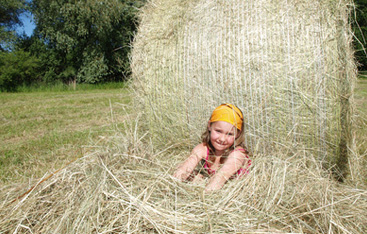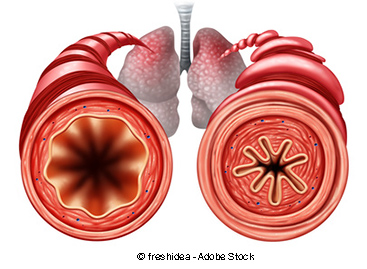
Children growing up on a farm have a significantly lower asthma prevalence.
Their inflammatory reactions leading to asthma are far less pronounced.
This finding is applied by studies at the Dr. von Hauner Children's Hospital of the LMU Munich - and advances this: The team around DZL PI Prof. Bianca Schaub aims to identify a way to transfer the anti-inflammatory effects of the rural environment into a therapeutic agent.
What is known: Small dust particles in the farm environment „make children almost immune“ to asthma. The team around Prof. Schaub could now simulate this effect in the laboratory: they stimulated blood cells of asthmatic children with the farm dust. Result: an anti-inflammatory, an asthma-protective effect.

In addition, the researchers found proteins that are markedly reduced in the blood cells of asthmatic children compared to healthy children. In children who developed asthma until school age, this reduction was already seen at birth. These proteins, an anti-inflammatory regulator (TNFAIP3) and DUSP3, an anti-inflammatory protein could serve as biomarker. Children whose blood contains comparatively little of this regulator have a higher risk of developing subsequent asthma.
Another interesting finding: This regulator with its anti-inflammatory effect was also responsive in children with asthma when stimulated in blood cells by farm dust. TNFAIP3 and also DUSP3 were then equally expressed as in the blood of healthy children.
Children with asthma: Treatment with microorganisms from farm dust?
This can be translated to further research goals: The biomarkers TNFAIP3 and DUSP3 will be integrated in the diagnosis of asthma. They may represent promising future markers for asthma prevention and possibly treatment. At the same time, the anti-inflammatory effect of farm dust will be further investigated. This may be an approach to protect children from asthma even in urban areas.


